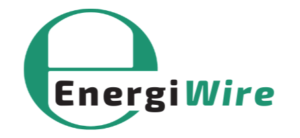INTRODUCTION:
The DeFi ecosystem has expanded at an unprecedented rate due to growing interest in decentralized applications, despite costly security failures. Security, interoperability, and scalability problems are always being addressed, and Polkadot appears to have made significant progress in this area. The developments made by Polkadot and their possible effects on the DeFi ecosystem are described in the article below, which was published by CityLife.
________________________________________________________
The decentralized finance (DeFi) ecosystem has been growing at an unprecedented rate, with the total value locked in DeFi protocols skyrocketing from just over $1 billion in early 2020 to over $60 billion today. This rapid growth has been fueled by the increasing interest in decentralized applications (dApps) and the promise of a more open, transparent, and efficient financial system. One of the most exciting developments in the DeFi space is the emergence of Polkadot, a next-generation blockchain platform that aims to bring a new level of interoperability, scalability, and security to the decentralized web.
Polkadot, developed by the Web3 Foundation and Parity Technologies, is a heterogeneous multi-chain platform that enables the seamless exchange of data and assets between different blockchains. This is achieved through its unique consensus mechanism, known as Nominated Proof-of-Stake (NPoS), and its innovative cross-chain communication protocol, the Inter-Blockchain Communication (IBC). By allowing multiple blockchains to interact and work together, Polkadot has the potential to address some of the most pressing challenges facing the DeFi ecosystem today, such as network congestion, high transaction fees, and limited scalability.
One of the key benefits of Polkadot’s interoperability is the ability to tap into the liquidity and composability of multiple DeFi ecosystems. Currently, most DeFi applications are built on Ethereum, which has led to network congestion and high gas fees, limiting the growth and adoption of DeFi. With Polkadot, developers can build dApps on various blockchain platforms, including Ethereum, and still access the liquidity and user base of the entire DeFi ecosystem. This not only helps to alleviate the pressure on Ethereum’s network but also enables new DeFi projects to launch and scale more easily.
Furthermore, Polkadot’s cross-chain capabilities can help to create a more efficient and resilient DeFi ecosystem. Currently, DeFi users often have to rely on centralized exchanges or single-chain decentralized exchanges (DEXs) to swap between different tokens and assets. This can be slow, expensive, and vulnerable to hacks and security breaches. Polkadot’s IBC protocol enables the creation of cross-chain DEXs, allowing users to trade assets directly between different blockchains without the need for intermediaries. This can lead to faster transaction times, lower fees, and increased security for DeFi users.
Another area where Polkadot can have a significant impact on DeFi is in the realm of decentralized identity and data privacy. With the increasing concerns about data breaches and identity theft, there is a growing demand for secure and privacy-preserving solutions in the DeFi space. Polkadot’s Substrate framework allows developers to build custom blockchains with built-in privacy features, such as zero-knowledge proofs and confidential transactions. This can enable the creation of DeFi applications that not only protect user data but also comply with data protection regulations, such as the European Union’s General Data Protection Regulation (GDPR).
Lastly, Polkadot’s governance model can also contribute to the long-term sustainability and innovation of the DeFi ecosystem. Unlike many other blockchain platforms, Polkadot has a built-in on-chain governance system that allows its community to propose and vote on upgrades and changes to the network. This ensures that the platform can evolve and adapt to the changing needs of the DeFi ecosystem, without the risk of contentious hard forks or centralized decision-making.
In conclusion, Polkadot’s unique features and capabilities have the potential to significantly impact the growth and innovation of the decentralized finance ecosystem. By enabling greater interoperability, scalability, and security, Polkadot can help to address some of the most pressing challenges facing DeFi today and pave the way for a more open, inclusive, and resilient financial system. As the DeFi space continues to evolve and mature, it will be exciting to see how Polkadot and its ecosystem of projects contribute to the ongoing revolution in finance.
Via this site

